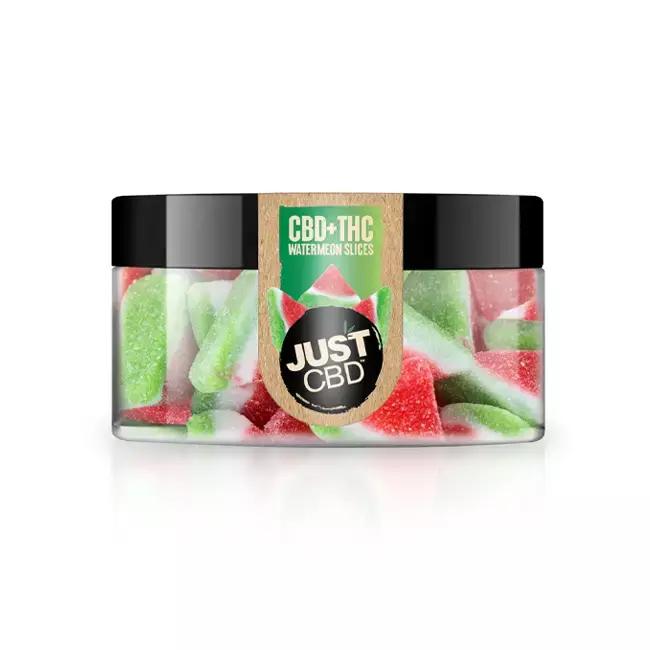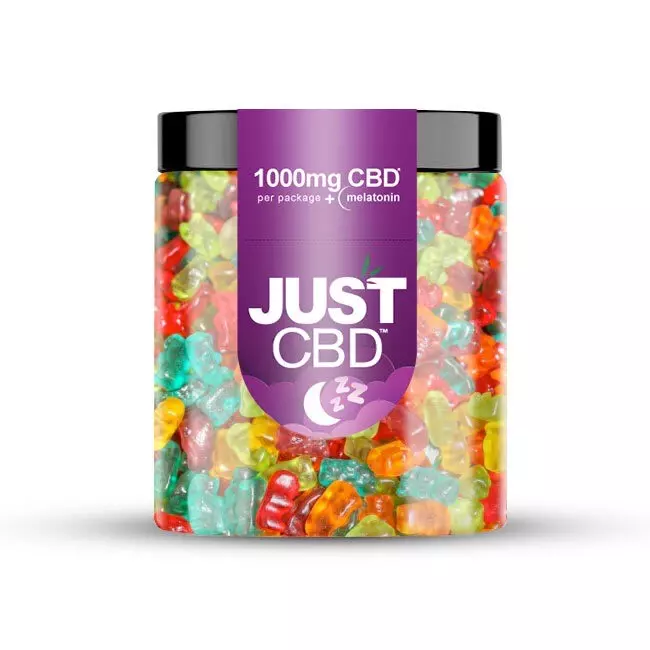Potential Mechanisms of Action
CBD gummies have gained popularity for their potential therapeutic benefits, including addressing digestive issues and nausea. Several mechanisms are proposed to explain how CBD might exert these effects.
CBD’s Interaction with the Endocannabinoid System
One key area of research focuses on CBD’s interaction with the endocannabinoid system (ECS). The ECS plays a crucial role in regulating various physiological processes, including digestion, appetite, and pain perception. It consists of receptors, primarily CB1 and CB2, which bind to endocannabinoids, naturally occurring molecules produced by the body. CBD is believed to exert its effects by modulating the activity of these receptors. While it does not directly bind to them like THC, CBD can influence their sensitivity and signaling pathways.
Impact on Gut Motility
Potential mechanisms through which CBD gummies might help with digestive health and nausea include modulation of the endocannabinoid system (ECS) and its impact on gut motility.
- CBD’s interaction with ECS receptors: The ECS plays a vital role in regulating gastrointestinal functions. By influencing the activity of CB1 and CB2 receptors, CBD could potentially modulate processes such as intestinal contractions, secretion of digestive enzymes, and inflammation within the gut.
- Impact on neurotransmitters: Studies suggest that CBD might influence the release and activity of neurotransmitters involved in gut motility. For instance, it may affect serotonin levels, which are known to regulate peristalsis (the wave-like muscle contractions that propel food through the digestive tract).
Influence on Inflammation and Immune Response
CBD’s anti-inflammatory properties may also contribute to its potential benefits for digestive health. Chronic inflammation in the gut is associated with various conditions like irritable bowel syndrome (IBS). CBD has demonstrated anti-inflammatory effects in both in vitro and in vivo studies, suggesting it could help reduce inflammation within the gastrointestinal tract.
Furthermore, CBD may influence the immune response in the gut. The gut houses a vast community of microorganisms known as the gut microbiome. Imbalances in this microbiome, termed dysbiosis, are linked to digestive disorders and inflammation. Studies indicate that CBD could modulate the composition and function of the gut microbiome, potentially restoring a healthier balance.
Studies and Research Findings
CBD gummies have gained popularity for their potential therapeutic benefits, including addressing digestive issues and nausea. Several mechanisms are proposed to explain how CBD might exert these effects.
CBD for Irritable Bowel Syndrome (IBS)
While research on CBD’s effects on IBS is ongoing, some studies suggest potential benefits. A 2019 study published in the journal Cannabis and Cannabinoid Research found that CBD oil reduced abdominal pain and discomfort in participants with IBS.
Another study, published in 2020 in the Journal of Gastrointestinal and Liver Diseases, reported that CBD improved symptoms such as diarrhea, bloating, and gas in individuals with IBS. However, more research is needed to confirm these findings and determine optimal dosages and treatment protocols for IBS.
Effectiveness Against Nausea and Vomiting
Studies investigating CBD’s effectiveness against nausea and vomiting have yielded mixed results. Some research suggests that CBD may reduce nausea induced by chemotherapy or other medical treatments. For example, a 2016 study in the journal Neurotherapeutics found that CBD significantly reduced chemotherapy-induced nausea and vomiting in patients.
However, other studies have shown less conclusive results. A meta-analysis published in 2022 in the Journal of Pain Research reviewed 37 clinical trials on CBD for various conditions, including nausea and vomiting, and concluded that while some evidence suggests potential benefits, more research is needed to confirm its efficacy.
Research Gaps and Future Directions
Research findings on CBD gummies’ impact on digestive health and nausea are still evolving. Existing studies suggest several potential mechanisms through which CBD might exert these effects. These include modulating the endocannabinoid system (ECS), influencing neurotransmitter activity, possessing anti-inflammatory properties, and potentially impacting the gut microbiome.
Some studies have shown promising results for CBD’s potential benefits in managing IBS symptoms like abdominal pain, diarrhea, bloating, and gas. However, more research is needed to establish clear guidelines on dosage, treatment protocols, and long-term effects.
Research on CBD’s effectiveness against nausea and vomiting has been mixed. While some studies indicate that CBD may reduce nausea induced by chemotherapy or other medical treatments, others have shown less conclusive results. Further research is required to determine the optimal dosage and therapeutic applications of CBD for managing nausea and vomiting.
Future directions in research should focus on conducting larger, well-controlled clinical trials with standardized dosages of CBD gummies to confirm existing findings and explore potential synergistic effects with other therapies.
Furthermore, investigating the long-term safety and efficacy of CBD gummies for digestive health and nausea is crucial. Exploring the specific mechanisms by which CBD interacts with the ECS, gut microbiome, and immune system will contribute to a deeper understanding of its therapeutic potential.
Types of CBD Gummies and Dosage Considerations
CBD gummies are gaining attention for their potential to alleviate digestive issues and nausea. Understanding the types of CBD gummies available and appropriate dosages is essential for anyone considering using them for these purposes.
Full-Spectrum vs. Isolate Gummies
CBD gummies come in various forms, each with different characteristics and potential effects. One crucial distinction is between full-spectrum gummies and isolate gummies.
Full-spectrum CBD gummies contain a broad range of cannabinoids found naturally in the hemp plant, including small amounts of THC (tetrahydrocannabinol), the psychoactive compound responsible for the “high” associated with marijuana. Isolate gummies, on the other hand, are made using purified CBD extract that has been isolated from other cannabinoids and compounds, resulting in a product containing only CBD.
Dosage considerations for CBD gummies vary depending on individual factors such as body weight, metabolism, and desired effects. It’s generally recommended to start with a low dose (e.g., 5-10 mg of CBD) and gradually increase it as needed, monitoring for any side effects.
Factors Influencing Dosage
Several factors influence the appropriate dosage of CBD gummies for digestive health and nausea. These factors include an individual’s body weight, metabolism, the severity of symptoms being addressed, and the desired outcome.
It is generally recommended to start with a low dose and gradually increase it until the desired effect is achieved while monitoring for any potential side effects.
Potential Side Effects and Interactions
CBD gummies have gained popularity for their potential therapeutic benefits, including addressing digestive issues and nausea. Several mechanisms are proposed to explain how CBD might exert these effects.
One key area of research focuses on CBD’s interaction with the endocannabinoid system (ECS). The ECS plays a crucial role in regulating various physiological processes, including digestion, appetite, and pain perception. It consists of receptors, primarily CB1 and CB2, which bind to endocannabinoids, naturally occurring molecules produced by the body. CBD is believed to exert its effects by modulating the activity of these receptors. While it does not directly bind to them like THC, CBD can influence their sensitivity and signaling pathways.
Potential mechanisms through which CBD gummies might help with digestive health and nausea include modulation of the endocannabinoid system (ECS) and its impact on gut motility.
- CBD’s interaction with ECS receptors: The ECS plays a vital role in regulating gastrointestinal functions. By influencing the activity of CB1 and CB2 receptors, CBD could potentially modulate processes such as intestinal contractions, secretion of digestive enzymes, and inflammation within the gut.
- Impact on neurotransmitters: Studies suggest that CBD might influence the release and activity of neurotransmitters involved in gut motility. For instance, it may affect serotonin levels, which are known to regulate peristalsis (the wave-like muscle contractions that propel food through the digestive tract).
CBD’s anti-inflammatory properties may also contribute to its potential benefits for digestive health. Chronic inflammation in the gut is associated with various conditions like irritable bowel syndrome (IBS). CBD has demonstrated anti-inflammatory effects in both in vitro and in vivo studies, suggesting it could help reduce inflammation within the gastrointestinal tract.
Furthermore, CBD may influence the immune response in the gut. The gut houses a vast community of microorganisms known as the gut microbiome. Imbalances in this microbiome, termed dysbiosis, are linked to digestive disorders and inflammation. Studies indicate that CBD could modulate the composition and function of the gut microbiome, potentially restoring a healthier balance.
While research on CBD’s effects on IBS is ongoing, some studies suggest potential benefits. A 2019 study published in the journal Cannabis and Cannabinoid Research found that CBD oil reduced abdominal pain and discomfort in participants with IBS.
Another study, published in 2020 in the Journal of Gastrointestinal and Liver Diseases, reported that CBD improved symptoms such as diarrhea, bloating, and gas in individuals with IBS. However, more research is needed to confirm these findings and determine optimal dosages and treatment protocols for IBS.
Studies investigating CBD’s effectiveness against nausea and vomiting have yielded mixed results. Some research suggests that CBD may reduce nausea induced by chemotherapy or other medical treatments. For example, a 2016 study in the journal Neurotherapeutics found that CBD significantly reduced chemotherapy-induced nausea and vomiting in patients.
However, other studies have shown less conclusive results. A meta-analysis published in 2022 in the Journal of Pain Research reviewed 37 clinical trials on CBD for various conditions, including nausea and vomiting, and concluded that while some evidence suggests potential benefits, more research is needed to confirm its efficacy.
Research findings on CBD gummies’ impact on digestive health and nausea are still evolving. Existing studies suggest several potential mechanisms through which CBD might exert these effects. These include modulating the endocannabinoid system (ECS), influencing neurotransmitter activity, possessing anti-inflammatory properties, and potentially impacting the gut microbiome.
Some studies have shown promising results for CBD’s potential benefits in managing IBS symptoms like abdominal pain, diarrhea, bloating, and gas. However, more research is needed to establish clear guidelines on dosage, treatment protocols, and long-term effects.
Research on CBD’s effectiveness against nausea and vomiting has been mixed. While some studies indicate that CBD may reduce nausea induced by chemotherapy or other medical treatments, others have shown less conclusive results. Further research is required to determine the optimal dosage and therapeutic applications of CBD for managing nausea and vomiting.
Future directions in research should focus on conducting larger, well-controlled clinical trials with standardized dosages of CBD gummies to confirm existing findings and explore potential synergistic effects with other therapies.
Furthermore, investigating the long-term safety and efficacy of CBD gummies for digestive health and nausea is crucial. Exploring the specific mechanisms by which CBD interacts with the ECS, gut microbiome, and immune system will contribute to a deeper understanding of its therapeutic potential.
CBD gummies are gaining attention for their potential to alleviate digestive issues and nausea. Understanding the types of CBD gummies available and appropriate dosages is essential for anyone considering using them for these purposes.
CBD gummies come in various forms, each with different characteristics and potential effects. One crucial distinction is between full-spectrum gummies and isolate gummies.
Full-spectrum CBD gummies contain a broad range of cannabinoids found naturally in the hemp plant, including small amounts of THC (tetrahydrocannabinol), the psychoactive compound responsible for the “high” associated with marijuana. Isolate gummies, on the other hand, are made using purified CBD extract that has been isolated from other cannabinoids and compounds, resulting in a product containing only CBD.
Dosage considerations for CBD gummies vary depending on individual factors such as body weight, metabolism, and desired effects. It’s generally recommended to start with a low dose (e.g., 5-10 mg of CBD) and gradually increase it as needed, monitoring for any side effects.
Several factors influence the appropriate dosage of CBD gummies for digestive health and nausea. These factors include an individual’s body weight, metabolism, the severity of symptoms being addressed, and the desired outcome.
It is generally recommended to start with a low dose and gradually increase it until the desired effect is achieved while monitoring for any potential side effects.
Recommendations and Precautions
Before incorporating CBD gummies into your health regimen, consult with a healthcare professional. This is especially important if you are pregnant, breastfeeding, have underlying medical conditions, or take medications.

Start with a low dose and gradually increase it as needed, paying attention to how your body responds. Remember that CBD affects individuals differently, so finding the right dosage may require some experimentation.

Consulting a Healthcare Professional
Before incorporating CBD gummies into your health regimen, consult with a healthcare professional. This is especially important if you are pregnant, breastfeeding, have underlying medical conditions, or take medications.
Start with a low dose and gradually increase it as needed, paying attention to how your body responds. Remember that CBD affects individuals differently, so finding the right dosage may require some experimentation.
Quality and Safety Considerations
CBD gummies have gained popularity for their potential therapeutic benefits, including addressing digestive issues and nausea.
While research is ongoing, several potential mechanisms explain how CBD might exert these effects:
- Modulation of the Endocannabinoid System (ECS): The ECS plays a crucial role in regulating digestion, appetite, and pain perception. CBD may influence the activity of CB1 and CB2 receptors, potentially modulating gut motility, enzyme secretion, and inflammation.
- Impact on Neurotransmitters: Studies suggest CBD might affect neurotransmitters involved in gut motility, such as serotonin, which regulates peristalsis.
- Anti-inflammatory Properties: Chronic gut inflammation is linked to conditions like IBS. CBD’s demonstrated anti-inflammatory effects may help reduce inflammation in the gastrointestinal tract.
- Gut Microbiome Modulation: CBD may influence the composition and function of the gut microbiome, potentially restoring a healthier balance.
Recommendations for Usage:
- Consult a Healthcare Professional: Before using CBD gummies, especially if you have underlying health conditions or take medications, consult with your doctor.
- Start Low and Go Slow: Begin with a low dose (e.g., 5-10 mg of CBD) and gradually increase it as needed, monitoring your body’s response.
- Choose Reputable Brands: Select products from trusted brands that provide third-party lab testing to ensure quality and purity.
Safety Considerations:
- Potential Side Effects: CBD can cause side effects such as diarrhea, drowsiness, changes in appetite, and dry mouth. Start with a low dose and monitor for any adverse reactions.
- Drug Interactions: CBD may interact with certain medications. Inform your healthcare provider about all medications you are taking.
- Pregnancy and Breastfeeding: The safety of CBD use during pregnancy and breastfeeding is not well established. It’s best to consult with a doctor before using it.
Individualized Approaches to Treatment
CBD gummies offer a potentially promising avenue for addressing digestive issues and nausea, but it’s essential to approach their use with a balanced understanding of their benefits, mechanisms, and potential considerations.
While research suggests that CBD might exert beneficial effects through its interaction with the endocannabinoid system (ECS), influencing neurotransmitters, possessing anti-inflammatory properties, and modulating the gut microbiome, more robust clinical trials are needed to solidify these findings and establish optimal dosages for specific conditions.
**Recommendations:**
* **Consult a healthcare professional:** Before incorporating CBD gummies into your regimen, especially if you have pre-existing health conditions or take medications, seek guidance from your doctor.
* **Start with a low dose:** Begin with a small amount of CBD (around 5-10 mg) and gradually increase it as needed while carefully observing your body’s response.
* **Choose reputable brands:** Opt for CBD gummies from trusted companies that provide third-party lab testing to ensure product quality, purity, and potency.
**Precautions:**
* **Potential side effects:** Be aware that CBD can cause side effects such as diarrhea, drowsiness, changes in appetite, or dry mouth. Start with a low dose and monitor for any adverse reactions.
* **Drug interactions:** CBD may interact with certain medications, so inform your healthcare provider about all the drugs you are currently taking.
* **Pregnancy and breastfeeding:** The safety of CBD use during pregnancy and breastfeeding is not fully established. It’s best to consult with your doctor before using it in these situations.
Remember that individual responses to CBD can vary, so finding the right dosage and approach may require some experimentation under the guidance of a healthcare professional.
Order CBD Gummies for stress relief
Try your favorite edible gummies at JustCBD
K Aesthetics Studio
Lovely Tart
- New Patient Treatment Near Reigate, Surrey - May 9, 2025
- Botox For Dimpled Chin In South Kensington, London - May 9, 2025
- Can You Buy THC Soda Online? What To Watch Out For - May 9, 2025
